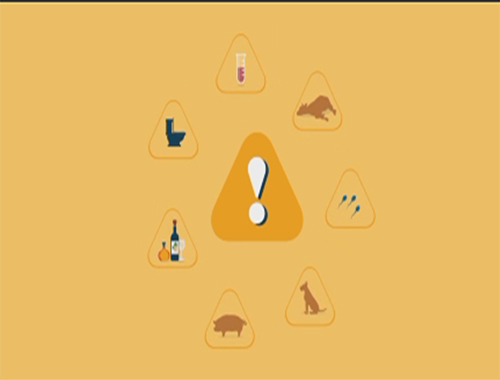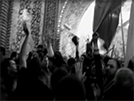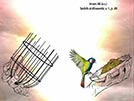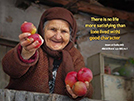Eighth Greater Sin: Usurping the Property of the Orphans
- Details
- Hits: 2815
Chapter 10
Eighth Greater Sin: Usurping the Property of the Orphans
--------------------------------------------------------------------------------
The eighth among the Greater Sins is to usurp the property of an orphan who has not attained maturity.
This is categorized as a Greater sin by the Holy Prophet (S), Imam ‘Ali (a.s.), Imam RiÄa (a.s.), Imam Kadhim (a.s.) and Imam Taqi (a.s.). It is a sin, the punishment of which is fixed by Allah (S.w.T.) to be the fire of Hell.
The Qur’an says,
“(As for) those who swallow the property of the orphans unjustly, surely they only swallow fire into their bellies and they shall enter burning fire.”
(Surah an-NisÄ’ 4:10)
It is mentioned in Tafsir al-Kabir that one who cheats an orphan of his property will be raised on the Day of Judgement in such a condition that the flames of fire will be protruding from his mouth, nose and ears. By looking at him people will recognize that he is the one who in his lifetime had usurped the property of the orphans. The last phrase, “They shall enter burning fire” indicates that one who deprives an orphan of his rightful property will be liable to be burnt in Hell-fire, even if he has not committed any other sin.
The Almighty Allah (S.w.T.) says,
“And give to the orphans their property, and do not substitute worthless (things) for (their) good (ones) and do not devour their property (as an addition) to your own property; this is surely a great sin.”
(Surah an-NisÄ’ 4:2)
The above verse gives clearcut instructions to those who are guardians and caretakers of the orphans, on how to fulfill their responsibility. They should spend the property in their trust in a correct manner for the benefit of the orphan and without stinginess. A caretaker should be very careful not to spend any of the orphan’s money on himself. This is a very serious offence that will cause his entire HalÄl wealth to become HarÄm. Under no circumstances should an orphan’s valuable possessions be substituted with anything inferior. Finally, when the child reaches maturity, all his property should be returned to him with complete honesty.
In the same chapter of Surah an-NisÄ’, Allah (S.w.T.) says in verse number nine:
“And let them fear who, should they leave behind them weakly offsprings, would fear on their account, so let them be careful of (their duty to) Allah, and let them speak right words.”
(Surah an-NisÄ’ 4:9)
It is mentioned in Tafsir-al-Mizan that whoever betrays the trust of orphans and oppresses them, their children will suffer a similar fate. This is an amazing reality that is revealed by the Holy Qur’an. Similarly in other numerous verses, the Qur’an informs us that the returns of our deeds are evident in this world itself. We will witness the results of our own actions. Every action has an effect on one who performs it, and we should be fully conscious of the fact that our sinful acts are not restricted to the sinner, but they come to bear on our children as well.
It is our confirmed duty to wish for others as we wish for ourselves. A good or bad action directed towards others therefore implies that we wish the same for ourselves. So, by carrying out these actions, we, in effect have prayed for it for ourselves. This prayer will not be rejected and we will be recompensed as we deserve.
The marvellous functioning of our body is the result of the co-ordination between the various composite parts and organs. We as individuals are also composite members of a large body, which is our community. Just as the malfunction of one organ in the body, causes distress in the other organs, so also whatever hurt or misery that we may inflict on another is bound to take us also in its grip. So it is, that the injustice we do to another’s child will cause our own children to suffer the repercussions of our actions. It is of course another matter that the Almighty in his Infinite Mercy allows some of our good deeds to compensate for the bad actions.
“And whatever affliction befalls you, it is on account of what your hands have wrought, and (yet) He pardons most (of your faults)”
(Surah ash-ShÅ«rÄ 42:30)
Undoubtedly, we must dread Allah (S.w.T.)’s punishment and refrain from oppressing the orphans. We have to have kind and tender feelings for them as we have for our own children. If we trample upon the rights of an orphan or do any injustice to him or her, we can rest assured that the same fate will befall our own children after our death. The verse of Surah an-NisÄ’ unequivocally states that oppressing an orphan is a Greater Sin. The horrible consequences of this sin are also mentioned clearly.











